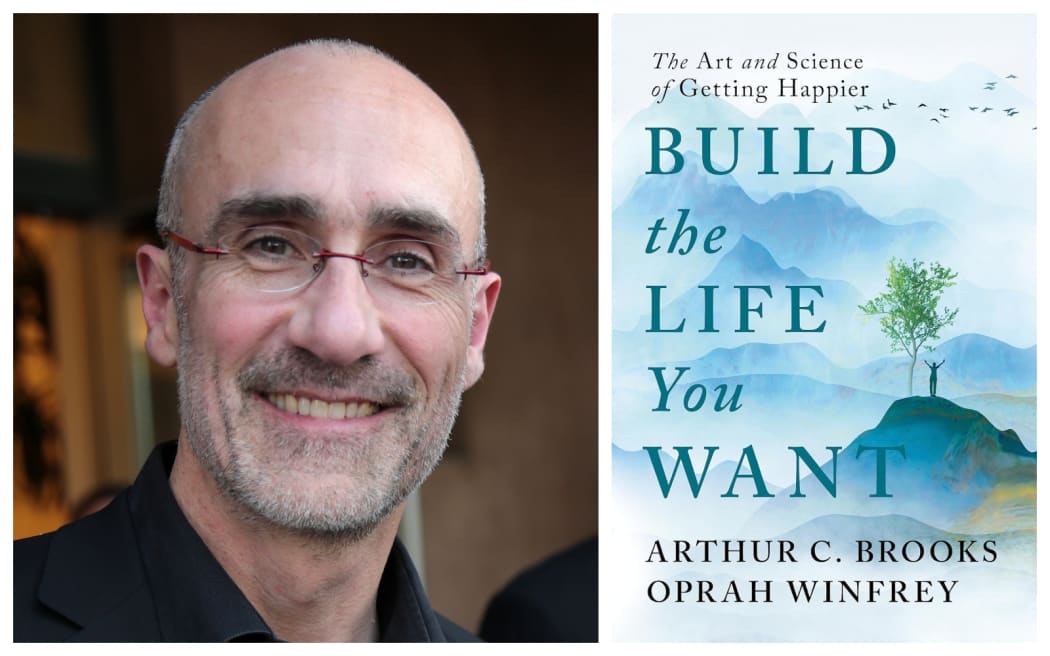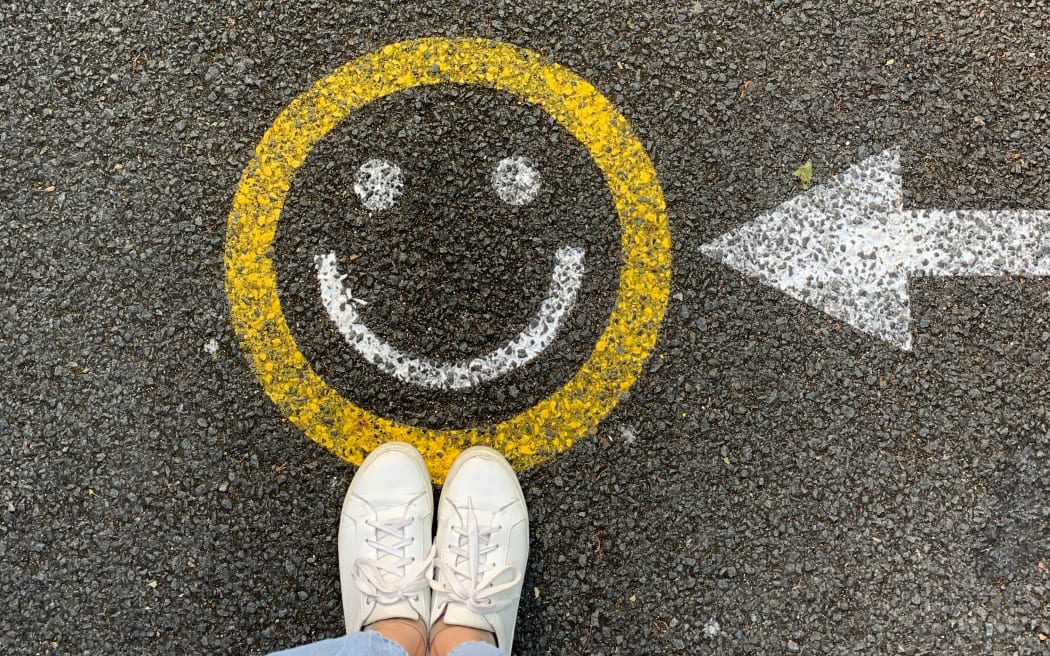
Harvard Business School professor and author Arthur C. Brooks has made a study of happiness. Photo:
How can we bring more happiness into our lives? How do we translate a yearning for happiness into the sort of action that will enable us to grasp it? How do we live, now, in a less-and-less happy world?
Arthur C. Brooks, a professor at Harvard Business School, best-selling author of 13 books and writer of the Atlantic Monthly’s How To Build a Life column, reckons he's got the answer.
The four things we think make us happy - money, power, pleasure and fame - do not, he tells Jim Mora.
The actual four that do bring happiness are faith, family, friendships and work that serves.
“I don't mean faith in a traditional sense, necessarily, I mean, a sense of philosophy about life's meaning. I mean, family relationships that are enduring, that are forgiving, I mean, real friendships, not deal friendships.
“And I'm talking about work where you can earn your success, you can create value with your work and where you believe that you're serving other people with your work. That's the big four.”
Brooks explores these themes in his new book, Build The Life You Want, which he wrote in tandem with Oprah Winfrey.
Pursuing pure happiness is a fool’s errand, he says.
“It's just not going to happen on this side of heaven. But what we can do is to understand negative experiences and emotions to manage them appropriately, so they don't take over our lives.
“The goal is to be the happiest person that we can possibly be,” he says.
The book delves into the science of emotions, Brooks says.
“It talks about the limbic system of the brain from which all emotions emanate, both negative and positive, and talks about how once you understand that process, you can engage a management technique called meta-cognition, a very well-vetted scientifically-based self-management technique that puts space between the limbic system and the prefrontal cortex of the brain, so that you can experience all of your emotions consciously in the prefrontal cortex, the executive part, the most modern part of your brain, as opposed to simply being managed by your emotions in the limbic system.”
To do this, you use techniques such as journalling, meditation, prayer, or even counselling and therapy, he says.
“That works neuro-physiologically, and gives you tremendous amounts of power over your emotions themselves, so that you can manage them better than you did before, and start to get happier.”

Happiness isn't found in money, power, pleasure or fame, says Arthur C. Brooks. Photo: Jacqueline Munguia / Unsplash
He helped students who he teaches the science of happiness at Harvard through this process, he says.
“I asked them at the end of the day to write down a list of the emotions that they felt. And in so doing, you move the experience of those emotions to your conscious brain, you can't write them down if you don't, and you sort of study them as if they were happening to another person, then you write down advice to yourself about how to deal with these emotions as if you were advising another person.”
This is important, he says, because you're treating your limbic system as if it was possessed by another person.
“Once people get used to it, they really like to do it, they find that they have a lot more emotional control, because when they're experiencing negative emotions, they know that this is about to go in the book. And when it goes in the book, it will suddenly seem a lot less threatening.
“When you're feeling angry and afraid about something on social media or something going on at work and you actually write it down, it suddenly becomes a lot less threatening, a lot less like a sabre-toothed tiger is chasing you.
“The reason is because your limbic system says it's a tiger, but your prefrontal cortex says it's just a just another little problem that you're going to need to manage.”
One of the most important things that we can do so that we don't feel emotionally out of control is to reclassify our emotions as simple information, he says.
“I'm getting this information because it's something that's happening outside, I can decide if I can substitute a better emotion for the one that I'm feeling, if I'm meta-cognitive, I can decide on the reaction if the reaction that I would typically have is not useful. I can even decide sometimes to disregard these emotions and just observe the outside world.
“But that all requires that you put space between the emotions and the experience that you have of them consciously.”
Happiness is misunderstood because people mistake it for a feeling, he says.
“Happiness is not a feeling any more than the smell of dinner is your dinner. Happiness has feelings and those are evidence of actual happiness. When we break it down to its component parts, we find that happiness has three macronutrients, which is the way that you would describe food in terms of protein, carbohydrates, and fat, all food is made up of those macronutrients.
"And similarly, happiness is made up of three macronutrients, which are enjoyment, satisfaction, and meaning. Those are the three things that we need to work on that we need to focus on that we need to get better at.”
The pursuit of pleasure is not the secret to happiness, he says.
“If all you do is you search for pleasure, you won't get happiness, you'll get addiction. What you need for enjoyment is to take the source of pleasure and add in communion with other people and memory.”
A rule of thumb, he says, if something gives you pleasure, don't do it alone.
“If you do something alone and hit the pleasure lever again, and again, and again, it'll give you addiction and not happiness.
“If you do something that you really, really like a lot with people that you love, and make memories with, then you will get enjoyment. And that will lead to happiness.”

